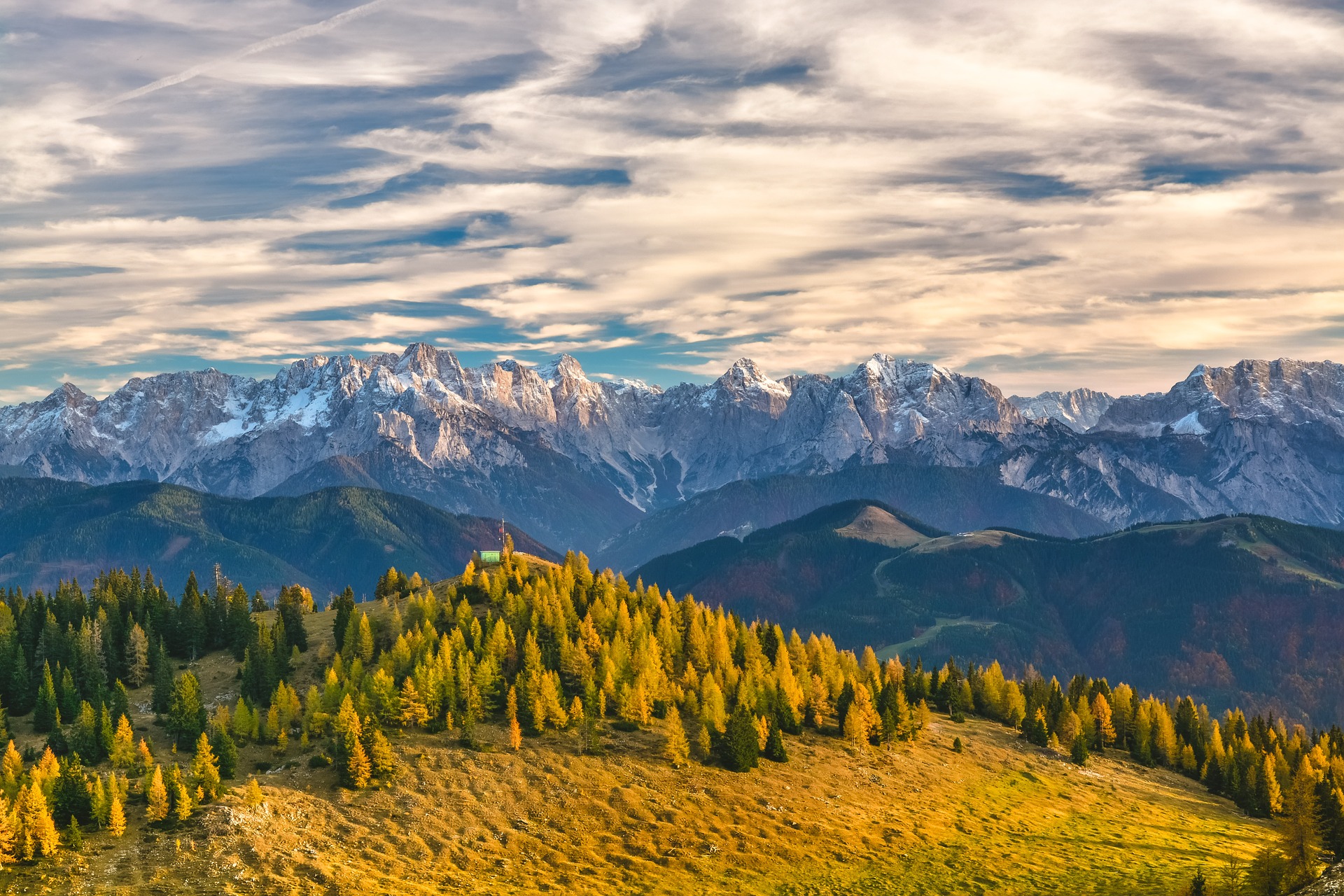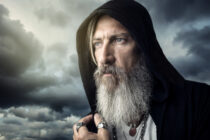Published in the Episcopal New Yorker (Spring 2016) page 24
“Noodged” by Grace
By the Rev. Rhonda Joy Rubinson
Priest-in-charge, Church of the Intercession, Manhattan
Something – or somebody – was nudging me.
Well not “nudging” me, exactly – more like “noodging” me, “noodging” being the Yiddishkeit expression for “bugging” or “nagging.” I didn’t know what exactly this “noodging” was about, and I couldn’t quite pinpoint its source. It was a nagging, persistent sense that somebody wanted me to do something. Even more bizarre, it was a nagging, peristent sense that somebody who loved me very much wanted me to do something. Eventually, I came to know that the noodging came from God, that the person who loved me very much was Jesus, and that what Jesus wanted me to do was to come to baptism.
That’s the short version of the story. Here are some details.
The year was 1985. I had been happily working as the Technical Director of first the theater then the dance departments at Barnard College and, I thought, I was quite content. After graduating Barnard in 1980 and the CU GSAS in 1981, I kicked off quite a nice career doing lighting design and production work in the arts, touring nationally and internationally, even working regularly for the Little Orchestra Society, the New York Philharmonic and the Metropolitan Opera. And yet something was noodging me, and it wouldn’t stop.
I had been aware for some time that I longed to be like people who seemed to be “religious,” folks who practiced either Judaism or Christianity (it didn’t matter which) and who seemed to carry an almost tangible aura of faith that completely secular folk like me just didn’t have. I was aware of that aura and that longing as early as age eleven. Our family had moved to Fair Lawn, New Jersey, and we had joined a synagogue for the first time, having not belonged to a shul in Brooklyn, where I was born and had lived until then. We were a definitely Jewish family, but as many post-World War II Jewish families were at that time, we were both Jewish in heritage and culture, and American liberal and secular in our politics and daily life. But I remember going to shul on the High Holy Days and being shocked – and excited – by the crowd around me fervently davening (praying aloud in Hebrew and bowing repeatedly). I was happy to follow along in English (the prayer book was bilingual) and tried my best to pronounce the Hebrew in transliteration (the English version of the Hebrew pronunciation), but I was keenly aware of a hunger for a deeper experience. By the time we had moved to New Jersey, I was too old to attend Hebrew School and prepare for bat mitzvah (not as common for girls back then as it is now). However, my younger brother was of the right age and so he toddled off to Hebrew School several times a week, and he hated it.
Time passed, and when I wasn’t in temple the longing would dissipate. Occasionally something besides the High Holy Days would cause it to flare up: one of my professors at Barnard was the late Barry Ulanov (whose second wife is Ann Belford Ulanov, the noted professor of psychotherapy and religion). I was blessed to take several classes with Prof. Ulanov, who was himself a Roman Catholic convert, and who knew the famous Roman Catholic priest/Trappist monk Thomas Merton personally from their student days together at Columbia College.
Slowly, “coincidences” began to collect (I put the word “coincidences” in quotes because I subscribe to the belief, first stated to me by my first rector the Rev. Jim Burn that “coincidences are God’s way of remaining anonymous”). Prof. Ulanov not only told us of his conversion to Catholicism and his friendship with Merton, but added that he had learned the Hebrew language for one reason only – to be able to study the Song of Songs in its original language, which I found astonishing. He also suggested we read Merton’s best-selling autobiography The Seven Story Mountain, although it wasn’t required. Years later, what Prof. Ulanov said in those classes – and did in his life – would come back to help me to baptism.
Tempus fugit. In 1982, I began stage-managing some choirs who often performed in churches, including the Cathedral of St. John the Divine and the Holy Trinity Greek Archdiocesan Cathedral on East 74th Street. Surprisingly, it was at Holy Trinity that I had my first two memorable religious experiences. The first was actually getting down on my knees and praying in a church – something Jews never do, so I checked around carefully to see no one was looking before I did it. I prayed for something hilariously minor in hindsight: we had misplaced the expensive microphone we needed to narrate that evening’s performance of Handel’s Messiah, and I prayed as hard as I could for it to be found since there was really no time to replace it. Not two minutes after I prayed, the choir manager came rushing in waving the microphone. My very first prayer was answered!
The second experience was more spiritual in both style and substance. Holy Trinity is the seat of the Greek Orthodox Patriarch of North America, who at the time was the late, very deep and gentle Archbishop Iakovos. Upon entering the cathedral, he would often lay a hand of blessing on each person he passed. He knew that I was Jewish, but one day he laid his hand on me in blessing anyway, and that was literally the first touch of grace that I experienced. It is impossible to describe, but I felt wonderful for days afterward. It was also at Holy Trinity that I got to experience a Christian liturgy for the first time in person – I had seen them on television – it was the Liturgy of St. John Chrysostom, which I found very compelling. Something was drawing me in, or trying to.
Plus temporis. My first boss at Barnard was diagnosed with colon cancer and died, in horrible fashion. A relationship that I thought was going somewhere broke up; he went off with a woman who could help his career. The noodging started in earnest; the persistent nagging feeling plus the psychological vertigo that accompanied it eventually convinced me that I needed help. So I went to see a very strange psychotherapist who had placed an ad in the Columbia Spectator. Not much help came from those sessions – I think she said I was neurotic, which of course I was – but I do remember that she sat in a fancy kimono-like robe on a couch in her living-room/office stroking a cat while talking to me.
So I resolved to figure this thing out on my own. Being a very good student and skilled researcher, I began reading. For some reason, I had the sense that the Bible might have an answer, so I began reading it, differently than I had in grad school, when I had taken a class called “Bible as Literature.” Oddly, when I read it, I felt comforted. Then the life and words of Barry Ulanov came back to me. I went back to reread Merton’s The Seven Storey Mountain and BANG – there it was! – laid out in front of me in glowing Technicolor. Merton described his conversion from the Anglican Church to the Roman Catholic Church in terms that echoed my spiritual, psychological, and emotional state very strongly. Plus he had that conversion experience at Columbia – where I was – and one of his best friends lived in the very building that I lived in. Coincidences, indeed! Now I knew the identity of the “somebody who loved me very much” – it was Jesus – and what he wanted me to do – get baptized.
The clarity was an enormous relief. I began for the first time to enter into a personal interior dialogue with Jesus, and of course a whole new set of issues emerged. What was I going to tell my family? I was always close with my father, mother, and brother, and I knew that this would upset them, to put it mildly. Christianity was not viewed kindly in our house – every year we would watch Midnight Mass from the Vatican on Christmas Eve so that we could get to “know our enemy.” Given the history of my family – my father’s side escaped Russia and the Ukraine in the pogroms between WWI and WWII, and my mother’s side included the lead prosecutor of Adolf Eichmann for war crimes – this was understandable. Yet something inside of me told me that my identity was not only Jewish but Christian, and that Jesus himself wanted me as part of his family, too.
Tenuit tempore transitus. I was waiting – and waiting, and waiting – for a sign that it was the right time to be baptized. In the meantime, I was in a state of tortured limbo, making myself increasingly miserable. Finally, it was Merton again to the rescue. In his autobiography, he says something like (in paraphrase), “If you know what you are supposed to do, don’t wait for angels and trumpets to call you to action – just get on with it!” Even so, the struggle was titanic. I am not by nature a confrontational person, so I tried to do what Jesus was calling me to do while keeping it from my family. In the two years that passed from when I realized that I was Christian and my baptism, I bit my tongue often and did not say a word to anyone. And after I was baptized, it was another long, wretched two years before I told my family, and then even I underestimated the power of their reaction.
But at that time, in 1987, I resolved to be baptized. I had begun hanging around St. John the Divine the year before, attending chapel services, sitting in the back, hoping not to be noticed, taking communion because I didn’t know I wasn’t supposed to do that yet. Since I occasionally met people I knew at St. John’s, and still desiring anonymity, I called the much smaller Notre Dame church on Morningside Drive inquiring about baptism. A very nice-sounding Roman Catholic priest named Fr. Cremin called me back several times, but I never returned his call. Instead, I walked up to Canon West at the Cathedral one day and said, “Father, I think I want to be baptized.” To which he replied, “That’s a good thing, dearie, seeing as how you’ve been taking communion.”
On Easter Vigil, 1987, I was baptized and confirmed at the Easter Vigil at St. John the Divine.




